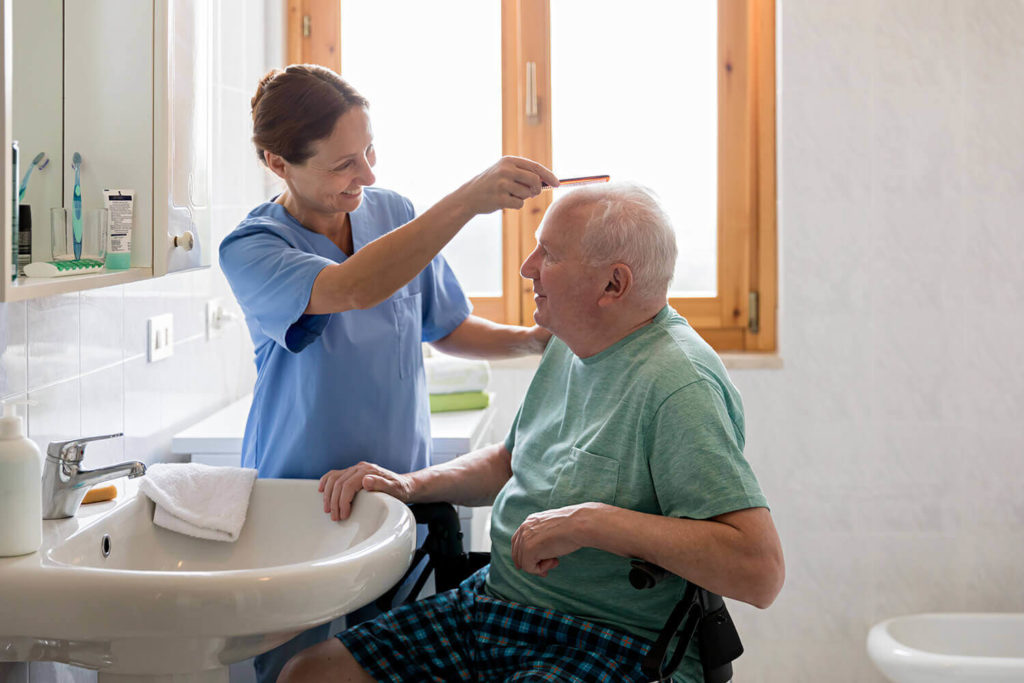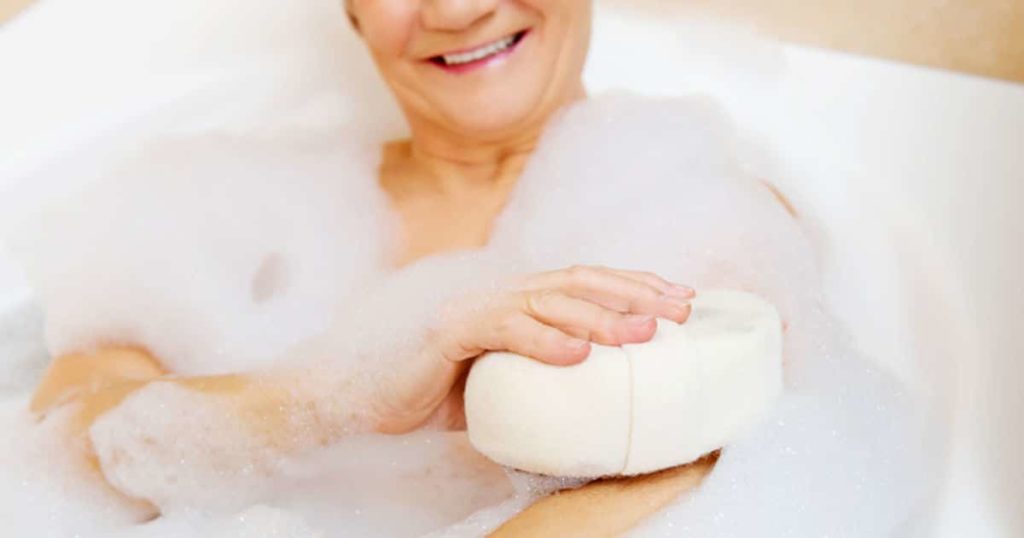
Your parent or other elderly loved one needs and deserves regular bathing. However, the senior citizen in your life might not be willing to admit he or she needs assistance with bathing. Instead of assuming everything is fine, ask your elderly family member if they are struggling to bathe properly. If your loved ones indicates there is a fear of falling or another challenge in bathing, do the smart thing by obtaining assistance from our care specialists.
Though no one enjoys being bathed by a caretaker, such assistance is often essential for senior citizens to remain clean and live with dignity. Instead of running the risk of your parent or grandparent slipping and falling in the shower or simply not bathing at all, reach out to our team for assistance. Our caregivers are here to help seniors with mobility and flexibility limitations.
Keep in mind, there is even the potential for the hot steam from a shower to cause your loved one to faint while showering. Instead of taking a risk, be safe rather than sorry by reaching out for our home care services for assistance with elderly bathing including care transferring, nursing incontinence, activities of daily life (ADL) and more. Our private duty nurses provide unique levels of assistance for each individual patient.
How often should an elderly person bathe?
There is no need for a senior citizen to bathe on a daily basis. However, merely bathing once every couple weeks is also a mistake. The happy medium is to bathe once every three to seven days. At most, senior citizens should bathe every other day.
If the elderly individual in your life fails to bathe at the optimal frequency, he or she will inevitably suffer skin issues including potential infections. Keep in mind, senior citizens are less active than those who are younger so there is no need for daily bathing yet bathing at least twice per week is essential to preventing body odor, urinary tract infections and itchy skin.
At a bare minimum, the senior you love should receive a sponge bath or other wipe-down. However, to answer the question of how often should elderly shower, a weekly shower or bath is ideal as opposed to a daily sponge bath for elderly.
How to Prepare
Preparing an elderly individual for bathing requires attention to detail. Be mindful of potential safety issues in the bathroom including the tub itself. The best way to properly prepare your loved one for a bath is to develop a routine. Our care providers are here to help develop a customized bathing routine and implement it. We provide in home bathing services including caregiver bathing a patient service, shower for elderly service and instruction on how to give an elderly person a shower. Our shower assistance for elderly sweats all the small stuff of showers for seniors for optimal cleanliness.
As an example, getting into the habit of bathing at the same time each morning or evening will help the senior you love so much establish a routine. Take some time to warm up the bathroom, especially during the winter months, to enhance its comfort all the more. Make it clear that the bathroom will be warm upon entry and your loved one will be that much more likely to embrace the idea of showering or bathing. Have a large towel ready to drape over your parent or other elderly relative when showering or bathing is complete so he or she isn’t subjected to the cold air for too long.
It will also help to have each bathing item ready before the shower begins. Prepare the soap, shampoo, sponge, washcloth and any other item the senior you love so much uses to bathe. Eliminate all distractions so you can give your full attention to your parent or other loved one. When in doubt, lean on our care providers to help the senior in your life bathe properly.
How it works
Book your appointment
Your information is safe
Peace of mind
Maintaining Patient Dignity
It is awfully difficult for seniors to admit they need assistance showering or bathing. Your loved one will feel that much more self-reliant and purposeful if he or she can perform some of the bathing tasks on his or her own. As long as it is safe, let your loved one shampoo, soap up and possibly even prepare a bath. Our care providers are here to provide assistance as necessary, ensuring the senior in your life maintains his or her dignity throughout the showering process. We also encourage seniors to use a hairdresser cape or drape a towel after sitting in the shower seat to maintain dignity.

Bathroom Safety for Elderly
Above all, the safety of your loved one matters most in the context of bathing. Ask your parent, grandparent or other senior in your life what worries them most about showering. Listen closely to those concerns and prepare accordingly. Forward the concerns to our team and we will help custom-tailor a showering experience with the specific safety concerns of your loved one in mind.
As an example, if your parent has mobility limitations or poor balance, the installation of grab bars inside and/or outside of the shower will help him or her enter and exit the shower without as much of a chance of falling. Bath aids for the elderly such as grab bars should be on the sides of the shower and also by the faucet handles, about 33 inches above the floor. However, the unique height and physical ability of your relative will ultimately determine the optimal positioning of the grab bars and other bathroom equipment for the elderly.
If you parent is sensitive to temperature changes, warm up the bathroom beforehand. The installation of heated floor tiles or a small heater will keep this space as warm as possible, ultimately facilitating a comfortable transition into and out of the shower.
Bathtub safety for the elderly also requires a dry and safe space around the bathtub. Do your best to keep this area as dry as possible and you’ll rest easy knowing you have done your part to prevent falls. The addition of a non-slip mat in the shower will also help your loved one remain upright as the water flows.

